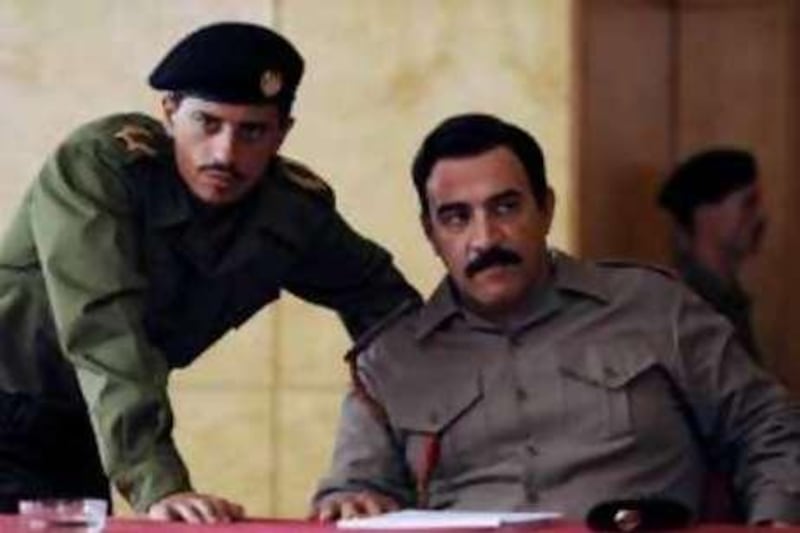"You think violence is a pastime?" shouts an incensed Saddam Hussein at his quivering son, Uday. "It is a tool." This, according to the joint HBO-BBC production, is how the burly leader who ruled Iraq for 24 years spoke; philosophically, half-mad and with a healthy dose of paranoia. "The law is anything I write on a piece of paper," is another example of his astonishing hubris. And, "I know a traitor before he knows himself".
This glossy four-part Emmy Award-winning mini series is an ambitious undertaking, and one the writers approach by focusing mainly on Saddam Hussein the man and the people who surrounded him rather than the wider consequences of his leadership. We meet him in 1979 as he is celebrating his youngest daughter's seventh birthday while simultaneously seizing power from the Ba'athist leader in a relatively bloodless coup - bloodless, that is, if you don't count the scores of suspected dissenters from his new administration whom he has lined up and shot by fellow ministers. The series culminates in his well-publicised extraction from that underground cell by US forces in 2003, and subsequent execution in 2006.
Here, we see Saddam the family man, presiding over an administration largely made up of weak, frightened relatives. According to the writers, his was a reign of terror characterised by acts of extreme brutality that included having his best friend shot ("the man who can sacrifice even his best friend is a man without weakness," he rationalises to his wife), and having his brother-in-law murdered for daring to point out dissent in the military. In fact, we lose count of the number of people he dispatches along the way. A suspicious look here, or a brusque tone there was, it seems, enough to guarantee a sticky end in the House of Saddam.
Neither is he alone in his evil. His ministers are depicted as equally power-hungry and corrupt. Then there is his eldest son, Uday, who manages to take sadism to a whole new level (his part, according to producers, had to be toned down because the deeds of his real-life self were do dreadful that they wouldn't seem believable on screen). Hence the scene is set for a fraught melodrama as egos clash and Saddam attempts to cling to power by sniffing out his detractors.
Though its often over-wrought content gives the series a made-for-television feel, the slick production values succeed in elevating it above the corny. Costumes and sets are meticulously researched, and there are some nicely shot sequences, such as when Saddam is shown nonchalantly flipping through slides of traitors, each of which is followed by footage showing their capture. Igor Naor tackles the substantial challenge of representing the villain without resorting to caricature. His Saddam is fiercely intelligent, quietly menacing and utterly unpredictable. Equally impressive is Philip Arditti's Uday, whose petulance and penchant for wanton violence is delivered with cool indifference. The roles for women are rather slighter, but Shoreh Aghdashloo's tearful performance as Saddam's spurned wife is cleverly laced with menace. As a family drama, it is engaging stuff, packed with rivalry, back-stabbing and that unquenchable thirst for power. But there is a gaping lack of context that prevents what is a very watchable series from succeeding on a historical level. Post-scripts explain that Iraq was left on its knees after the Iran-Iraq war, but the thousand of Shia troops who were killed barely get a mention. Likewise, his extermination of the Kurds in Northern Iraq is only referred to once, jokingly, over lunch. Omitting the wider consequences of his regime on the Iraqi people is to portray only a fraction of the picture. And someone with no prior knowledge of the situation might well wonder why on earth, based on this series alone, the West was so obsessed with him for so long.





